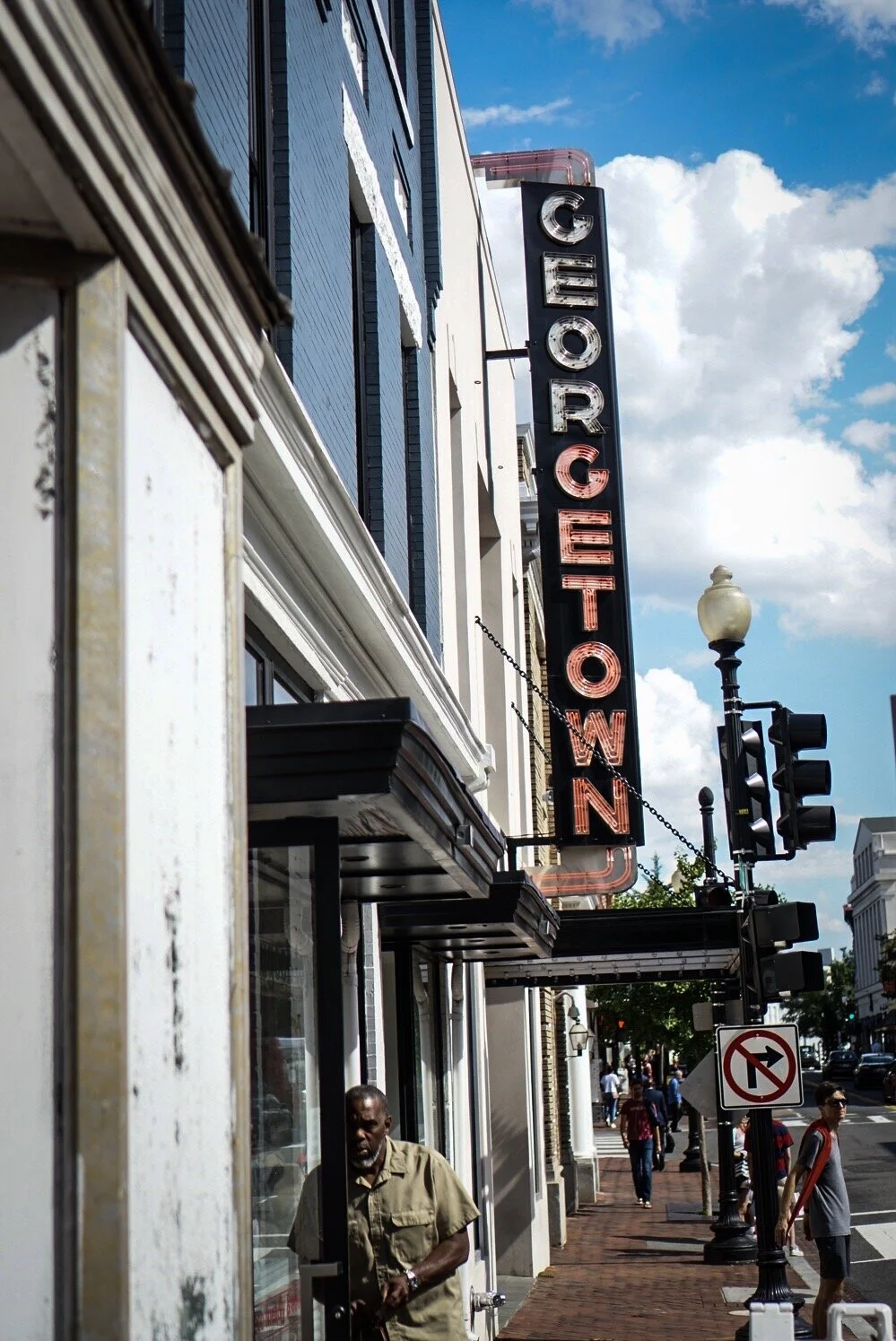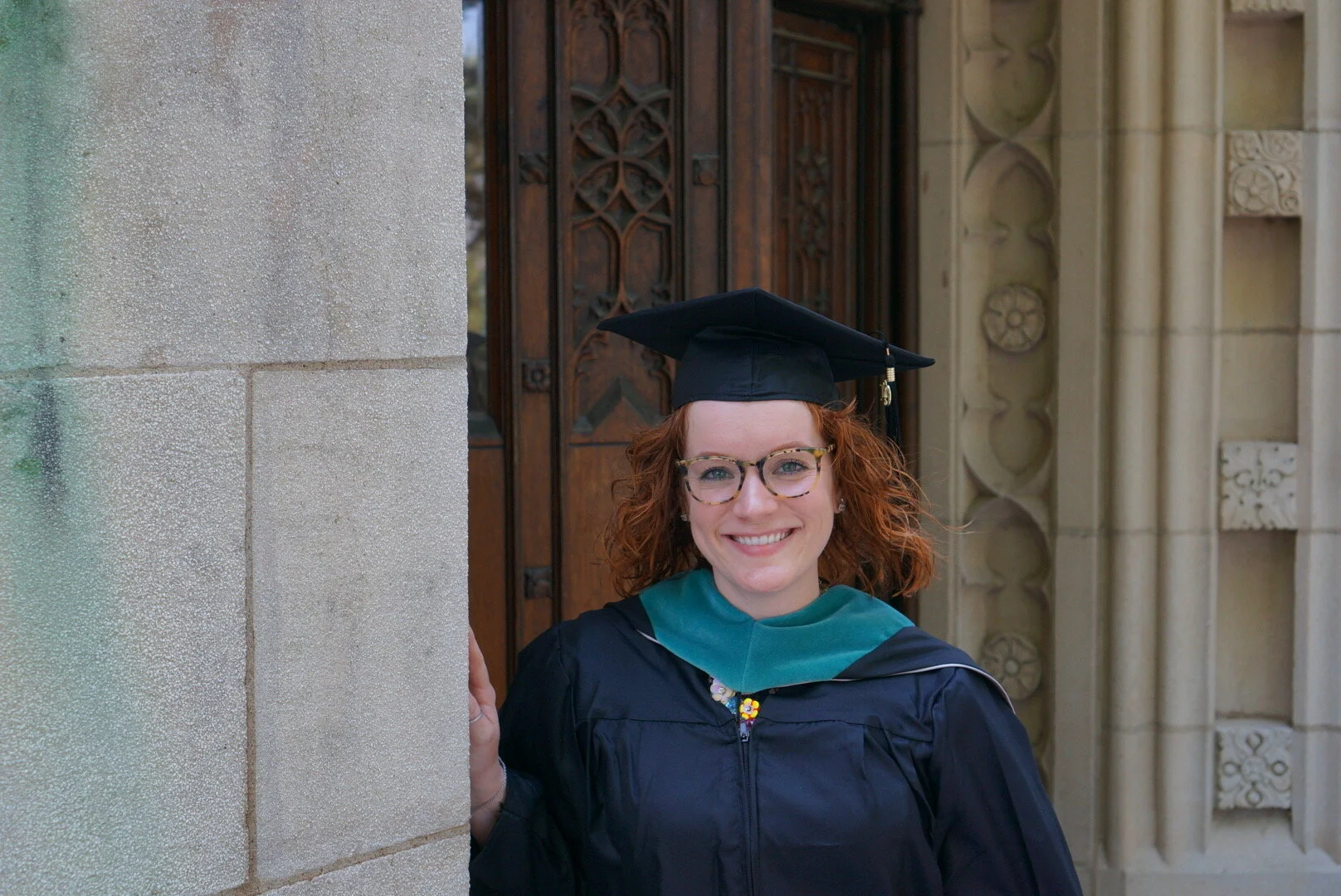Grad School Online - Picking a Program and Sticking with It
Given the pandemic, it seems like online learning is becoming the norm but three years ago when I was exploring graduate program options, brick and mortar universities were still curating their programs. I did a lot of exploration finding the right program for me and I settled on the Public Relations and Corporate Communications Master’s program at Georgetown University. While they do offer this program on-campus, I opted for the online curriculum so I could continue my job as Chief Advancement Officer of a local nonprofit and remain in Texas.
Why online? I’ve always loved school and my undergraduate experience was wonderful. That being said, I worked nearly full time while earning my bachelor’s and I liked being busy. I’m one of those people who thrives under pressure and when I have more on my plate, I tend to get more done. I also really loved my job and didn’t want to sacrifice my income or career to obtain a graduate degree. Even more-so, I didn’t want to lose every evening and weekend in an executive program. I appreciated the flexibility online education gave me, and I made sure that online didn’t mean self-taught. I wanted the same look and feel as an on-campus experience, so I looked into how programs delivered materials, handled lectures and exams, and what thesis or capstone requirements were involved.
Why Communications? My undergraduate work focused on public administration/government and economics, and my public sector career naturally progressed into communications and development. I taught myself Adobe Creative Suite early on, but I still clung to a bit of imposter syndrome. When were people going to realize I was a grant writer who hadn’t taken grantwriting classes? Did my peers know I tested out of writing classes and hand’t enrolled in a grammar class since high school? I explored MBA options, but they are expensive (nearly double my master’s program tuition) and were so generalized I didn’t feel like I would walk away with significant improvements. Working for nonprofits, I knew there was a likelihood I wouldn’t make a return on this investment, so I looked at it as a major purchase rather than an academic decision. I started the process by ruling out academia; I wanted to be taught by practitioners who had been there done that rather than professors who understood the theory more strongly than the practice. I looked into fundraising programs, but the options are scarce. I also wanted the flexibility to learn skills that would benefit me in my nonprofit work but would also translate to corporate social responsibility (which was a great call since I have transitioned my career into corporate citizenship).
Why Georgetown? I completed an on-campus institute program at Georgetown exactly ten years prior to when I began my online coursework. I loved the school, the campus, how entrenched the university was in government and Washington D.C. I felt like the pool of instructors was top-notch and I was excited to learn from a rich slate of ex-military, PR agency leads, for-profit executives, nonprofit communicators, and consultants. I looked into the publications the professors wrote and the course offerings and I found myself pulled toward the program. I also felt like the caliber of students would create interesting discussions and my peers would push me, which for the most part held true.
How was the coursework? I learned a lot, and put my new skills to use quickly. The semester before I graduated, the CEO of the nonprofit I worked for announced his retirement, and I immediately jumped into the biggest communications process of my career; announcing a departure to stakeholders, orchestrating language about the executive search internally, then to the public, assuring funders and investors of organizational, continuity and stability, presenting the organization in an attractive way to applicants, planning events for the CEO’s farewell, and planning the announcement and selection of the incoming executive - all while the day-to-day continued. I was shocked at how well the information I learned translated; how little tidbits from the media relations class made it easier to pitch stories to reporters, how crisis communications played into an unexpected departure, and how my internal comms class was exactly what I needed when the only boss my colleagues knew was leaving. I gleaned more from courses I didn’t think were immediately relevant and I’m still using what I learned.
The courses I took were: Elements of Communications Planning, Ethics, Internal Communications, Crisis Communications, Public Relations Writing, In Search of the Big Idea, Corporate Communications, Digital Communications, Consulting, and Capstone.
The program continues to expand course offerings online, and they’ve expanded into cause engagement. They also allow some cross-enrollment between public relations and their integrated marketing program, which even further leverages the courses to help create an individualized learning plan.
How was work life balance? Graduate school and a full time job isn’t for the faint of heart. For me, the most challenging pieces of Georgetown were the first and last courses: elements of communications planning and capstone. I appreciated the routine the program helped me build, which with the coronavirus now seems like a distant memory. The program is interactive, and in some areas you can self-pace. It became quickly apparent that you get out of the program what you put into it, and I felt like the harder I worked, the more I learned. I started the program in June and I was married in September 2017, and while traveling for wedding preparations, I found myself taking photos in a CVS store as part of my communications plan and thinking about good communications every time I saw a campaign.
How was networking? A big advantage of in-person graduate studies is the formation of substantive relationships with emerging leaders and growth of a personal professional network. This was an area that I held low expectations for when I began the program, but I found myself pleasantly surprised. I graduated with a tightly-knit group of professionals like me. Some have started families in the time since graduation, and watching their families grow in tandem with their careers has been a joy. They’ve were an amazing sounding board as I made the transition from nonprofit work to corporate social responsibility, and having never been employed by a for-profit, they were a needed lifeline. It does come back to harvesting the yield you plant, but the program does go out of their way to group and couple students and allow you to connect with peers. Rather than graduate with a local network, I have connections across the US and across sectors that I can bounce ideas off of and connect.
My Favorites: Two pieces of the program stand out, and I’m grateful that they were bookends. My elements of communications planning professor, Neil , was one of the best and most detail-oriented instructors I’ve ever had. I turned in a 60 page document and he circled any time I had two spaces between words. When was the last time someone looked at your work with that level of detail? His attention to the look and content of my work made me focus more, and I still think that my communications plan for his class was one of the pieces I’m proudest of. I was also blessed with a TA for my capstone that went above and beyond. At one point, her apartment flooded, and even with an unanticipated move and damage to her home and belongings she STILL made time for our weekly sync. When your capstone advisor is sitting on a water-damaged floor so she can work with you, its inspirational to say the least. I also went to the commencement ceremonies in person, and if you have the option, I encourage it. Having met so many of my peers virtually, I loved visiting with them in person and meeting their families!
My Words of Wisdom: Think about where you are and where you’re going when you select a program. Titles and university names are great, but if you don’t get the training to take your career to the next level, you just accrued a lot of debt with minimal gain. If you’re going to pay for higher education, explore your options as a customer making a major purchase and dig deep into what you need and your career goals. #hoyasaxa



